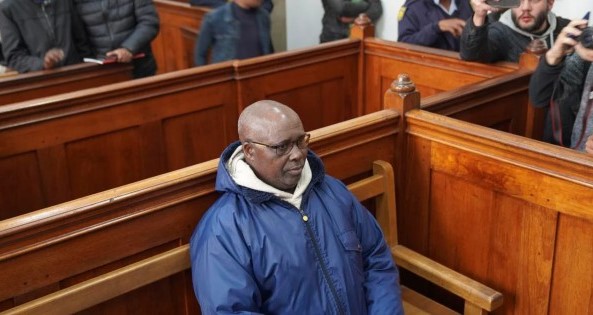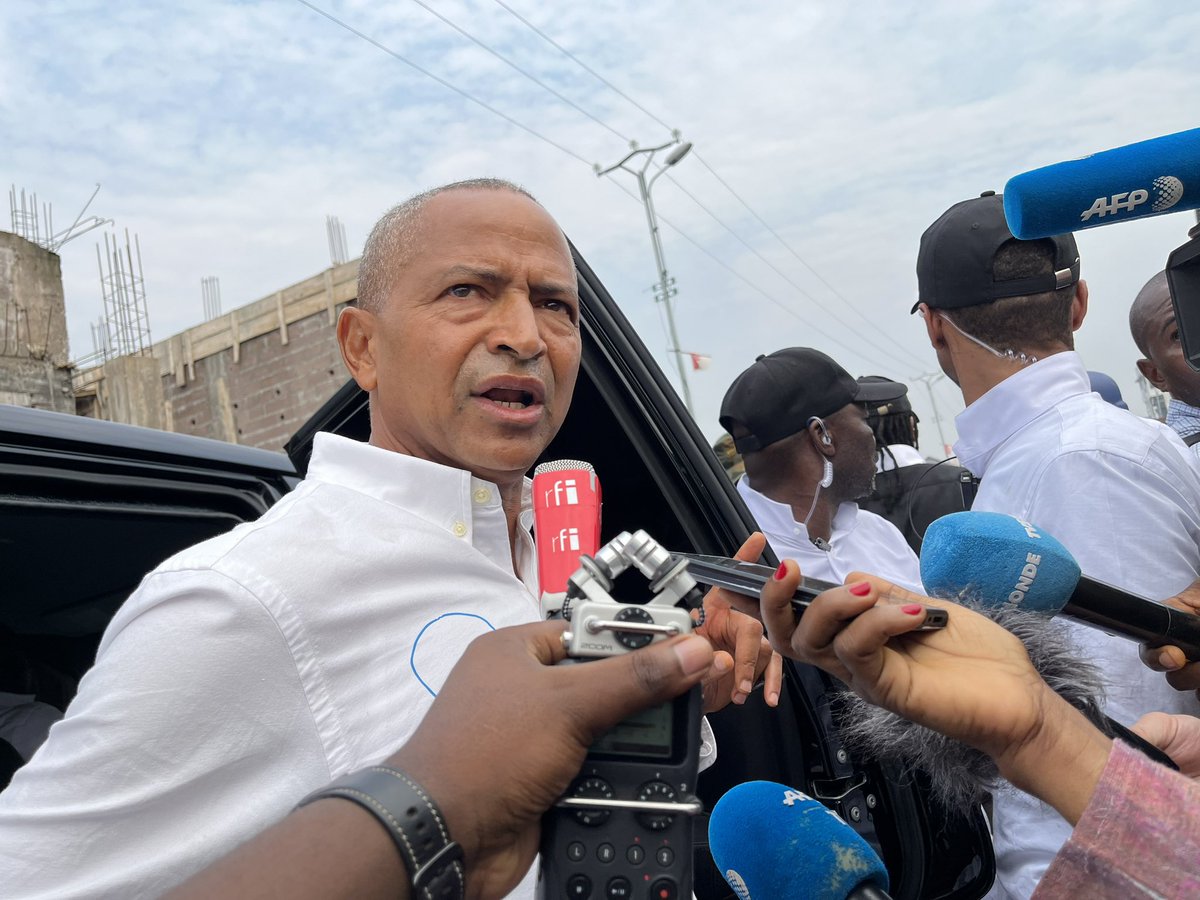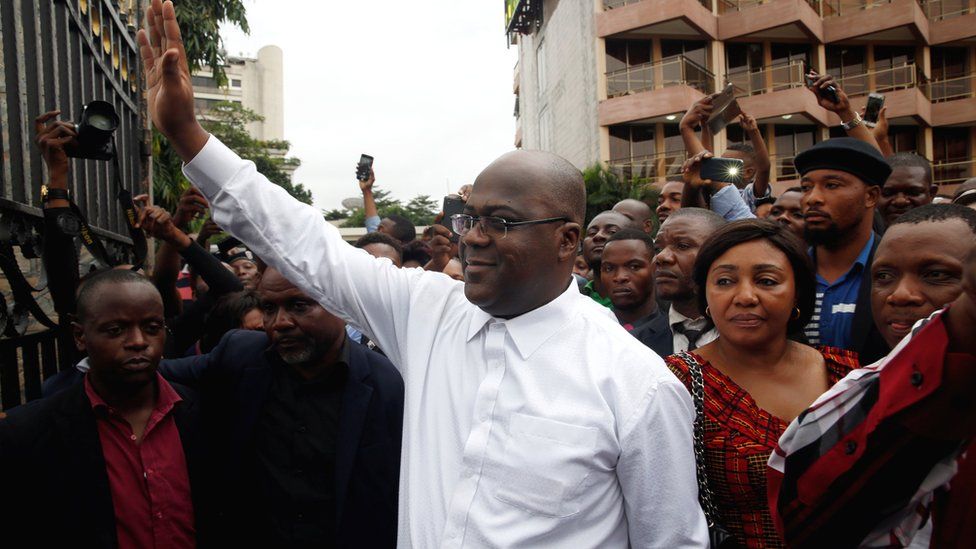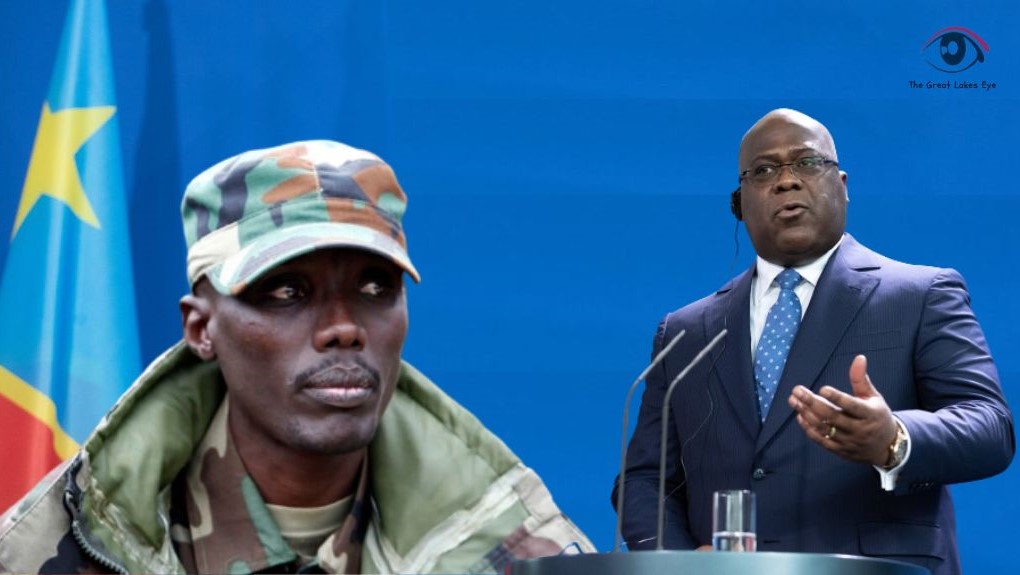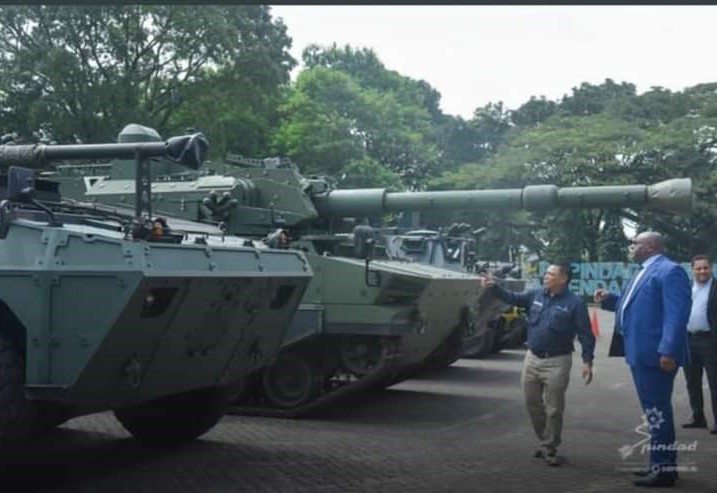Regional
DRC: Gen Kiugu hits ground running, but will he save the country from self-destruction?

The new East African Community Regional Force
(EACRF) Force Commander, Maj Gen Aphaxard Muthuri Kiugu, assumed office in
Goma, the capital of eastern DRC’s North Kivu province, on May 18.
Having
been previously deployed in the region as a disarmament, demobilization,
reintegration and repatriation officer while serving with the UN Mission in
eastern DRC from 2003 to 2004, Kiugu is no total stranger to the conflict
there. Will that help him much? Time will tell.
Kiugu replaced Maj Gen Jeff Nyagah, another
Kenyan officer, who – according to the EAC Secretariat – was re-assigned other national duties after “serving the region diligently” despite
the ‘rumor’ that he resigned. Some commentators are still asking; was it a
resignation, a forced departure, or simply the consequence of a military
reshuffle in Kenya? Whatever the case, there are clear signs that something
unpleasant, or unwelcome, could happen if common sense, or well-intentioned
political will, does not prevail, in Kinshasa.
The EAC is fully committed to ensuring the restoration of peace
and security in eastern DRC and any other part of the region. But Kinshasa
looks determined to frustrate all regional efforts towards peace as long as the
December 2023 presidential election is secured for the incumbent, president
Félix Tshisekedi. The Congolese leader seeks to buttress his political campaign for
re-election. He wants, at
whatever cost, to woo voters in eastern
DRC whom he promised – four years ago – to end the threat of armed
rebels. But how fighting the M23 rebels factors into this non-linear complex
equation is a story for another day.
All eyes will be on the relationship between
the new Force Commander and Congolese authorities after the resignation of his predecessor.
Nyagah, it is an open secret, had a very rough time dealing with Congolese
authorities, including Tshisekedi, who hassled him continuously; pushing him to
militarily confront the M23 rebels. The latter are only one among more than 130
local and foreign armed groups, including the genocidal FDLR militia from
Rwanda, wreaking havoc in the region.
The M23 are fighting against long-running
marginalisation and persecution of the Congolese Tutsi community by the
government in Kinshasa. But Kinshasa does not want to listen, or sort out,
their grievances however much genuine they are.
Kenya’s President William Ruto personally witnessed the hostility the Kenyan military officer endured, when, during the February 2023 EAC Summit in the Burundian capital, Bujumbura, Tshisekedi angrily confronted Nyagah, telling him to fight the M23 rebels or risk the wrath of the Congolese population.
"It would be unfortunate if the population
were to attack you. You came here to help us, not to have problems," Tshisekedi
told Nyagah as Ruto watched, silently.
The tension was intolerable.
Two months later, as revealed in a leaked April
27 letter to EAC Secretary General, Peter Mathuki, Nyagah who headed EACRF
since its deployment in November 2022 threw in the towel, noting that there was
a systematic plan to frustrate efforts of the regional force.
He wrote: “There was an attempt to intimidate
my security at my former residence by deploying foreign military contractors
(mercenaries) who placed monitoring devices, flew drones and conducted physical
surveillance of my residence in early January 2023 forcing me to relocate.”
Nyagah exposed how there had been “well-orchestrated
and financed” negative media campaigns “targeted at my personality and direct
written false accusations of EACRF’s complacency on the handling of the M23
group.”
“This is further enhanced by the current push
by the government of DRC to have the FC rotated every three (3) months which
was not envisioned in the current mandate…I have come to the conclusion that my
security as the Force Commander is not guaranteed within the operation area.”
The startling details about intimidation in
Nyagah’s resignation letter were an indication that the EAC regional force is
operating in a hostile environment. One of the questions now is; will the
regional force survive after the appointment of a new commander?
Keen to engage various key actors within North
Kivu to create synergy in the ongoing joint effort to restore normalcy in eastern
DRC, Kiugu hit the ground running. As part of his key leadership engagement as
well as familiarisation tour with key stakeholders in eastern DRC, on May 19, he
paid a courtesy call to his MONUSCO counterpart, Lt Gen Otávio Rodrigues, at
the UN Mission’s Headquarters in Goma. The two commanders discussed the possible EACRF-MONUSCO areas of
collaboration such as information sharing and air space management as well as
the principal function of the protection of civilians.
Kiugu also paid a courtesy call to the Military Governor of North
Kivu province, Lt Gen
Constant Ndima Kongba, at his office in Goma. Their discussions revolved around
enhancing administration within M23 vacated areas, opening the main supply
routes, progress of M23 withdrawal as well as the Congolese government's plans
for the disarmament, demobilization, community recovery, and stabilization
program (P-DDRCS).
Achieved significant milestones
Earlier, on May 18, Kiugu told EACRF
officers in Goma that the regional force has achieved significant milestones
since its deployment in November 2022, including ensuring the withdrawal of the
M23 rebels from previously occupied territories – as particularly mandated by
the Luanda agreement of November 23, 2022 – and other tasks such as the
protection of civilians and humanitarian support in the contingents’ areas of
operation.
Does
Tshisekedi, or his military right hand in Goma, agree that the EAC regional
force has achieved significant milestones in its peace assignment? The EAC regional force is a
buffer force meant to support political means to end the conflict. However, despite
establishing a ceasefire between the M23 and the DRC army in North Kivu,
Kinshasa blames EACRF for “complacency” towards the M23. Kinshasa declared a
lack of satisfaction with the regional force and – in addition to the coalition
of mercenaries from eastern Europe and other armed groups already conscripted
in the Congolese army – started searching for another force with combat capabilities
against the M23 rebels.
Kiugu arrived about 10 days after
Tshisekedi embarked on shuttle diplomacy in Southern Africa for backup. After a
meeting of the Southern African Development Community (SADC) leaders held in
Windhoek, Namibia, on May 8, the Southern African bloc approved the deployment
of a force to DRC. While in Botswana, on May 9, an emboldened Tshisekedi indicated
that EACRF might leave his country in June if the results of its mission are
not satisfactory.
“I
am coming to pick from where Maj Gen Jeff Nyagah left and according to my assessment,
you have done well,” Kiugu
told his troops on May 18.
Such comments are a recipe for disaster, considering Kinshasa’s take on EACRF and Nyagah’s accomplishments before he left.
However,
Kiugu noted, there are certainly “lessons that we can learn from past
experience, that can enable us to improve towards achievement of the desired
end state.”
So,
what lessons will EACRF learn from past experience?
Kiugu
added: “I want to remind each one of us that we are one people of EAC with a
common objective of enabling the citizens of eastern DRC that are affected by
insecurity to realize peace.”
The
new force commander implored his troops to continue with the efforts of
ensuring M23 fully withdraws from the areas they occupied earlier to the
designated localities per the Luanda Roadmap.
For
how long will the EAC regional force keep insisting on dialogue and refuse to do
what Tshisekedi wants – take offensive action against the M23 rebels?
The EAC regional force’s mandate expired
in March and has not been renewed formally. The mandate was only, verbally,
renewed till June after delays by Kinshasa which accused the force (EACRF is
actually acting on directions given by EAC leaders) of having not achieved much
to end the fighting – read fight M23 rebels – in the region.
The priority of EAC Heads of state has
been ending the conflict, first, through a political process. But President
Tshisekedi insists that they must fight the M23 rebel group. If they continue
refusing, will Kinshasa eventually quit the Luanda and
Nairobi peace frameworks and throw the region into war and chaos?
A
July 2022 EAC Heads of
State Summit decided to mainstream the Nairobi peace process into the
bloc by invoking
provisions of Article 4 of the EAC Protocol on peace and security and appointed
former Kenyan President Uhuru Kenyatta as the facilitator.
The Nairobi peace process which led to
the creation of EACRF had two pillars: a political and a military solution.
First and most important was the
political pillar which championed dialogue between the Congolese government and
the various rebel groups, including M23.
It was pictured that if the political
dialogue failed, only then would the military pillar be activated.
But the Congolese government never
entertained the idea of dialoguing with M23 despite pleas from EAC Heads of State.
Much to Tshisekedi’s irritation, EACRF has made tremendous progress in its efforts to restore peace and stability in eastern DRC as envisaged by EAC Heads of State.
The other day, Kenyan troops under EACRF
offered medical aid to expectant woman in Kibumba village. They did not only
take her to a health centre where she had a successful delivery but also helped
her get back home and offered much needed food to the family. Her family was
thankful.
The Kenyan troops did something the
villagers had never seen Congolese soldiers do for civilians in North Kivu.
But on social media, elites in Kinshasa had
a worrying reaction.
“You have till June 15th to
leave. SADC will finish this job,” one unthankful post went.



